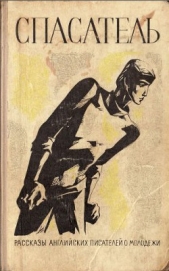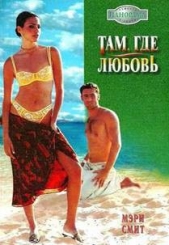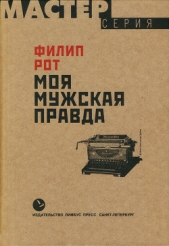Заметки к истории болезни

Заметки к истории болезни читать книгу онлайн
Внимание! Книга может содержать контент только для совершеннолетних. Для несовершеннолетних чтение данного контента СТРОГО ЗАПРЕЩЕНО! Если в книге присутствует наличие пропаганды ЛГБТ и другого, запрещенного контента - просьба написать на почту [email protected] для удаления материала
A week later, invited to lunch by Stanley, she suggested the Trattoria Siciliana which was more expensive, as she knew quite well, than he had expected. But this meal was a success. He was impressed with her, though he knew (how could he not, when his was similar?) her background.
She was careful to be engaged for two weeks. Then she agreed to go to the pictures — 'a foreign film, if you don't mind, 1 think the American films are just boring.' She did not offer to pay, but remarked casually that she had nearly six hundred pounds in the post office. 'I'm thinking of buying a little business, some time. A dress shop. I've got a cousin in the trade.'
Stanley agreed that 'with you taste' it would be a sure thing.
Maureen no longer went to the Palais, or similar places (though she certainly did not conceal from Stanley that she had 'once'), but she loved to dance. Twice they went to the West End together and danced at a Club which was 'a nice place'. They danced well together. On the second occasion she offered to pay her share, for the first time in her life. He refused, as she had known he would, but she could see he liked her for offering: more, was relieved; in the office they said she was mean, and he must have heard them. On that night, taken home lingeringly, she opened her mouth for him and let his hands go down to her thighs. She felt a sharp sexuality which made her congratulate herself that she had never, like Shirley, gone 'half-way' before. Well of course, girls were going to get married to just anybody if they let themselves be all worked up every time they were taken out!
But Stanley was not at all caught. He was too cool a customer, as she was. He was still looking for something better.
He would be an architect in a couple of years; he would be in a profession; he was putting down money for a house; he was good-looking, attractive to women, and with these assets he ought to do better than many Maureen. Maureen agreed with him.
But meanwhile he took her out. She was careful often to be engaged elsewhere. She was careful always to be worth taking some where expensive. When he took her home, while she did not go so far as 'nearly the whole way', she went 'everything but'; and she was glad she did not like him better, because otherwise she would have been lost. She knew quite well she did not really like him, although her mind was clouded by her response to his hands, his moustache, his clothes and his new car.
She knew, because meanwhile a relationship she understood very well, and regretted, had grown up with Tony. He, watching this duel between the well-matched pair, would grin and drop remarks at which Maureen coloured and turned coldly away. He often asked her out — but only for a 'Dutch treat' — expecting her to refuse. 'How's your savings account, Maureen? I can't save, you girls get it all spent on you.' Tony took out a good many girls: Maureen kept a count of them. She hated him; vet she liked him, and knew she did she relied on him above all for the grinning, honest understanding of her: he did not approve of her, but perhaps (she felt in her heart) he was right? During this period she several times burst into tears when alone, without apparent reason; afterwards she felt that life had no flavour. Her future was narrowing down to Stanley; and at these times she viewed it through Tony Head's eyes.
One night the firm had a party for the senior members of the staff. Stanley was senior, Maureen and Tony were not. Maureen knew that Stanley had previously asked another girl to go, and when he asked herself, was uncertain whether she could make it until the very last moment: particularly as his inviting her, a junior, meant that he was trying out on the senior members the idea of Maureen as a wife. But she acquitted herself very well. First, she was the best-looking woman in the room by far, and the best-dressed. Eve ryone looked at her and commented: they were used to her as a pretty typist; but tonight she was using all her will to make them look at her, to make her face and body reflect what they admired. She made no mistakes. When the party was over Stanley and two of the younger architects suggested they drive out to London airport for breakfast, and they did. The two other girls were middle-class. Maureen kept silent for the most part, smiling serenely. She had been to Italy, she remarked, when a plane rose to go to Italy. Yes, she had liked it, though she thought the Italians were too noisy; what she had enjoyed best was the Sistine Chapel and a boat trip on the Adriatic. She hadn't cared for Venice much, it was beautiful, but the canals smelled, and there were far too many people; perhaps it would be better to go in winter? She said all this, having a right to it, and it came off. As she spoke she remembered Tony, who had once met her on her way to the National Gallery. 'Getting yourself an education, Maureen? That's right, it'll pay off well, that will.'
She knew, thinking it all over afterwards, that the evening had been important for her with Stanley. Because of this, she did not go out with him for a week, she said she was busy talking to her cousin about the possibilities of a dress shop. She sat in her room thinking about Stanley, and when thoughts of Tony came into her mind, irritatedly pushed them away. If she could succeed with Stanley, why not with someone better? The two architects from that evening had eyed her all the following week: they did not, however, ask her out. She then found that both were engaged to marry the girls they had been with. It was bad luck: she was sure that otherwise they would have asked her out. How to meet more like them? Well, that was the trouble — the drive to the airport was a bit of a fluke; it was the first time she had actually met the seniors socially.
Meanwhile Stanley showed an impatience in his courtship — and for the first time. As for her, she was getting on for twenty-one, and all the girls she had grown up with were married and had their first or even their second babies.
She went out with Stanley to a dinner in the West End at an Italian restaurant. Afterwards they were both very passionate. Maureen, afterwards, was furious with herself: some borderline had been crossed (she supposed she still could be called a virgin?) and now decisions would have to be made.
Stanley was in love with her. She was in love with Stanley. A week later he proposed to her. It was done with a violent moaning intensity that she knew was due to his conflicts over marrying her. She was not good enough. He was not good enough. They were second-best for each other. They writhed and moaned and bit in the car, and agreed to marry. Her eight hundred pounds would make it easier to buy the house in a good suburb. He would formally meet her parents next Sunday.
'So you're engaged to Stanley Hunt?' said Tony.
'Looks like it, doesn't it?'
'Caught him — good for you!'
'He's caught me, more like it!'
'Have it your way.'
She was red and angry. He was serious.
'Come and have a bite?' he said. She went.
It was a small restaurant, full of office workers eating on luncheon vouchers. She ate fried plaice ('No chips, please') and he ate steak-and-kidney pudding. He joked, watched her, watched her intently, said finally: 'Can't you do better than than?' He meant, and she knew it, better in the sense she would use herself, in her heart: he meant nice. Like himself. But did that mean that Tony thought she was nice? Unlike Stanley? She did not think she was, she was moved to tears (concealed) that he did. 'What's wrong with him then?' she demanded, casual. 'What's wrong with you? You need your head examined.' He said it seriously, and they exchanged a long look. The two of them sat looking goodbye at each other: the extremely pretty girl at whom everyone in the room kept glancing and remarking on, and the good-looking, dark, rather fat young accountant who was brusque and solemn with disappointment in her. With love for her? Very likely.
























